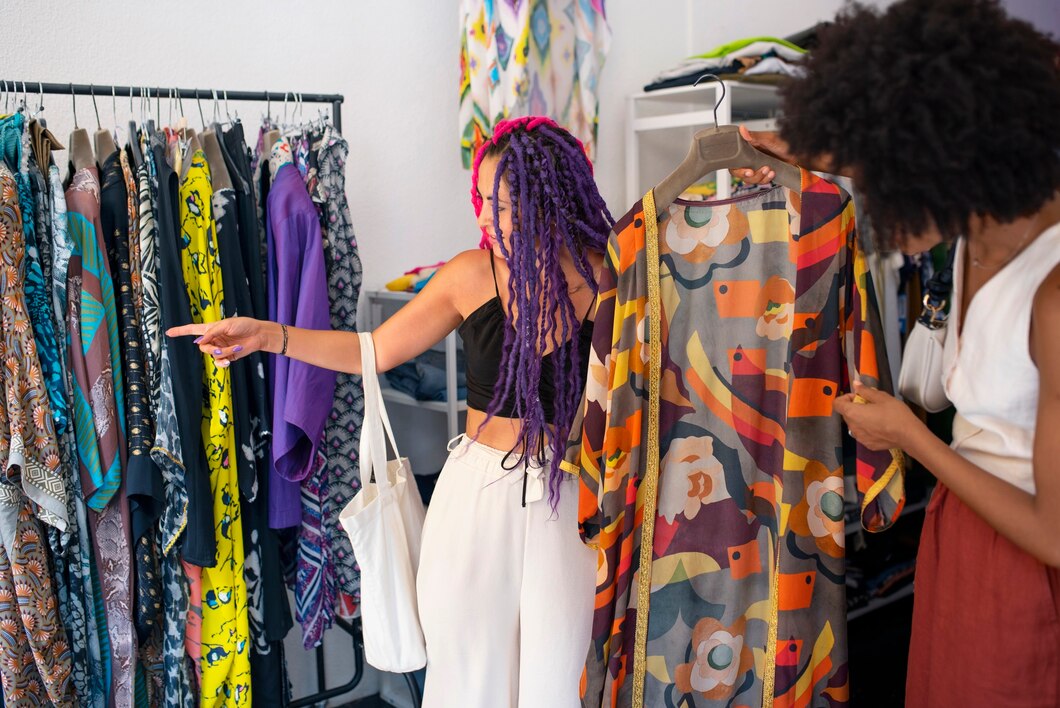South Africa is a vibrant tapestry of cultures, each with its unique traditions, languages, and styles. This diversity is beautifully reflected in the country’s traditional clothing and accessories, which offer both locals and tourists a chance to connect with South African heritage in a tangible way. Shopping for these items is not just about fashion; it’s about celebrating a rich history and supporting local artisans who keep these traditions alive.
The Rich Tapestry of South African Traditional Clothing
Zulu Traditional Attire
The Zulu people, one of the largest ethnic groups in South Africa, are known for their colorful and elaborate traditional clothing. For women, the isidwaba, a pleated skirt made from cowhide, is often worn with a beaded necklace called an izigolwane. Men traditionally wear the umblaselo, a brightly colored tunic. Zulu beadwork is especially famous, often featuring intricate geometric patterns and vibrant colors, each design carrying specific meanings and messages.
Xhosa Traditional Attire
Xhosa traditional attire is distinguished by its elegant beadwork and the distinctive isikhakha (traditional blanket) worn by women. The umbhaco, a long skirt and top combination, is often adorned with colorful beads and patterns. Men typically wear amabhayi, traditional shawls, and accessories like beaded necklaces and bracelets. Xhosa clothing is characterized by its use of black, white, and colorful beadwork, often representing social status and family lineage.
Sotho Traditional Attire
The Sotho people are known for their iconic Basotho blanket, a woolen garment that is both functional and symbolic. The blankets come in various patterns and colors, each with its history and significance. Sotho women often wear long skirts and tops with distinctive hats known as mokorotlo, a woven straw hat. The traditional Sotho attire reflects the culture’s close ties to the land and its agrarian lifestyle.
Ndebele Traditional Attire
The Ndebele people are renowned for their striking geometric patterns and vibrant colors. Women wear beaded aprons called ijogolo and iporiyana, along with intricate neck rings made of copper or brass. The Ndebele house paintings are also a significant cultural expression, influencing their clothing designs. Men typically wear animal skin capes and beaded accessories, symbolizing their status and heritage.
Accessories and Craftsmanship
Beadwork
Beadwork is a common thread across many South African cultures, each with its unique style and symbolism. From necklaces and bracelets to earrings and headpieces, these intricate works of art are crafted using traditional techniques passed down through generations. Shopping for beadwork offers a chance to own a piece of living history, each item telling a story of its origins and the hands that made it.
Leatherwork and Footwear
Leatherwork is another essential aspect of South African traditional accessories. Items such as sandals, belts, and bags are crafted using locally sourced materials and traditional methods. The veldtschoen, a type of shoe made from rawhide, is a staple in South African footwear, combining functionality with cultural heritage.
Hats and Headgear
Headgear in South African culture is often more than just a fashion statement; it signifies social status, age, and marital status. The iqhiya (headwrap) worn by Xhosa women, the isicholo (hat) worn by Zulu women, and the mokorotlo of the Sotho are examples of how headgear plays a significant role in cultural expression. These items are often handmade using traditional methods, making them unique pieces of art.
Where to Shop
Local Markets and Craft Fairs
Visiting local markets and craft fairs is one of the best ways to shop for traditional South African clothing and accessories. These venues offer a wide range of handmade items directly from artisans, ensuring authenticity and quality. Markets such as the Neighbourgoods Market in Johannesburg and the V&A Waterfront Market in Cape Town provide a vibrant atmosphere where shoppers can find unique pieces while engaging with the creators.
Specialty Stores and Boutiques
Specialty stores and boutiques focused on African fashion and heritage offer curated selections of traditional clothing and accessories. These shops often feature high-quality items and provide a more personalized shopping experience. Boutiques such as African Fashion International and Indalo Décor & Design in South Africa are known for their commitment to promoting local artisans and preserving cultural heritage.
Online Platforms
For those who prefer shopping from home, various online platforms specialize in African fashion and traditional attire. Websites like Afrikrea and MzanziStore offer a wide selection of clothing and accessories from across the continent, providing an opportunity to explore different cultures and styles from the comfort of your home.
Shopping for traditional South African clothing and accessories is a journey into the heart of the country’s cultural heritage. Each piece, whether a beaded necklace or a Basotho blanket, tells a story of tradition, craftsmanship, and identity. By choosing to purchase these items, shoppers support local artisans and help preserve the rich tapestry of South Africa’s diverse cultures. Whether visiting bustling markets or exploring online boutiques, the experience of discovering these unique treasures is both rewarding and enriching.








